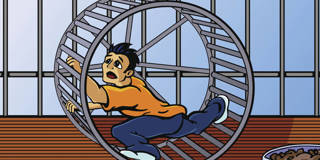
Marx and the Mechanical Turk
Karl Marx’s belief that capital and labor were substitutes, not complements, was a mistake in his own age and for more than a century to follow. But it may not be a mistake today.

Karl Marx’s belief that capital and labor were substitutes, not complements, was a mistake in his own age and for more than a century to follow. But it may not be a mistake today.
BERKELEY – The economist Suresh Naidu once remarked to me that there were three big problems with Karl Marx’s economics. First, Marx thought that increased investment and capital accumulation diminished labor’s value to employers and thus diminished workers’ bargaining power. Second, he could not fully grasp that rising real material living standards for the working class might well go hand in hand with a rising rate of exploitation – that is, a smaller income share for labor. And, third, Marx was fixated on the labor-theory of value.